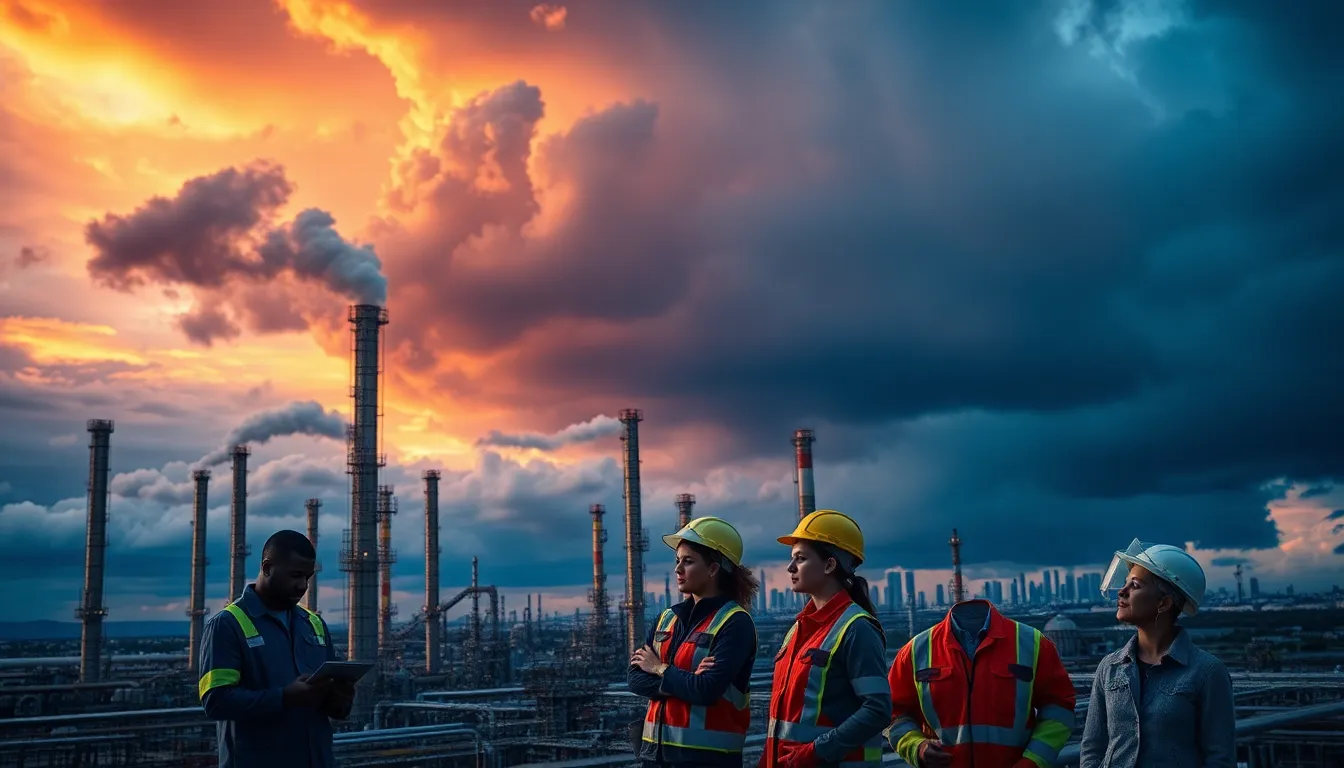In the dynamic arena of energy, global events continuously reshape the landscape, influencing how nations produce, consume, and conserve energy. As climate change concerns intensify, innovative technologies emerge, and geopolitical tensions simmer, staying informed on current events in the energy sector is crucial. This article delves into major global events impacting energy markets, evaluates climate initiatives, highlights technological advancements in renewable energy, and examines geopolitical tensions that could alter the energy future. Here, readers can gain insights into the current and future energy landscape.
Table of Contents
ToggleMajor Global Events Impacting Energy Markets

Recent developments around the globe have had profound effects on energy markets. One notable event was the pandemic’s influence on energy consumption and supply chains. Initially, COVID-19 caused a drastic reduction in energy demand, leading to significant price drops, oil prices even turned negative in April 2020 for the first time in history. In response, major oil-producing countries, particularly those in OPEC+, agreed to cut production to stabilize prices.
As economies recover, demand is returning, but the market is facing headwinds like inflation and supply chain disruptions. Besides, instability in key regions, such as the Middle East and Eastern Europe, poses risks to energy supplies and prices, emphasizing how interconnected global events are with energy markets. Large-scale disruptions can lead to volatility, impacting both consumers and businesses in numerous sectors.
Climate Change Initiatives and Their Effects
The urgency of addressing climate change has prompted numerous countries to carry out significant initiatives aimed at reducing carbon emissions. The Paris Agreement remains a central framework, where participating countries commit to climate action plans to keep global warming below 2 degrees Celsius.
In response to these mandates, nations are investing heavily in renewable energy sources, such as wind, solar, and hydroelectric power. For instance, the European Union aims to become climate-neutral by 2050, which requires substantial investments in new green technologies and infrastructure.
These initiatives are not just beneficial for the planet: they also influence energy markets. As renewable technology becomes cheaper and more efficient, fossil fuel demand is expected to decline, potentially leading to a significant market shift in favor of clean energy sources.
Technological Advances in Renewable Energy
Technological innovation plays a critical role in enhancing renewable energy efficiency and lowering costs. Companies worldwide are exploring cutting-edge technologies, from advanced solar panels to innovative battery storage solutions.
One significant advancement is in photovoltaic solar technology. Recent improvements have increased the efficiency of solar panels, allowing them to convert more sunlight into electricity. This innovation supports wider adoption in both residential and commercial spaces, driving down costs and making solar energy a more accessible option.
Also, developments in battery technology are crucial for energy storage, allowing renewable sources to generate power even when the sun doesn’t shine or the wind doesn’t blow. Energy storage solutions not only enhance grid reliability but also support the transition to more sustainable energy systems.
Geopolitical Tensions and Energy Resources
Geopolitical tensions continue to have a profound impact on energy resources, particularly in regions like the Middle East and Eastern Europe. Conflicts and political tensions can disrupt supply lines, leading to energy shortages and dramatic price fluctuations.
For example, the ongoing conflict between Russia and Ukraine has raised significant concerns over Europe’s natural gas supply, leading countries to seek alternatives to reduce dependence on Russian energy. This shift emphasizes the importance of energy security in national policies as states explore new partnerships and energy sources.
Besides, disputes over territorial waters and energy rights in regions like the South China Sea highlight how energy resources can serve as a catalyst for geopolitical conflicts, underlining the essential relationship between global politics and energy security.
The Future of Global Energy Policies
Looking ahead, the future of global energy policies will likely focus on sustainability and security. Governments around the world recognize the critical need to transition to cleaner energy sources and mitigate climate change while ensuring energy independence.
Policies promoting renewable energy adoption and incentives for green technologies are expected to grow. Also, international cooperation is essential, as countries strive to meet emissions targets collectively. Collaborative efforts, such as carbon trading systems and joint investments in renewable projects, will be pivotal in shaping future energy landscapes.
As nations continue to navigate the complexities of energy, economic, and environmental considerations, energy policies will need to be adaptive, forward-thinking, and inclusive of diverse stakeholder voices.
Innovative Solutions from Around the World
Around the globe, innovative solutions are emerging to overcome energy challenges. Countries such as Denmark have become leaders in wind energy, setting benchmarks for efficiency and integration into the grid. Meanwhile, Germany’s Energiewende initiative focuses on a comprehensive approach to phase out nuclear power while dramatically increasing the use of renewables.
Plus, numerous startups are taking part in the energy revolution, developing smart grids that enhance energy management and promote efficiency. These solutions not only address immediate energy needs but also reflect a commitment to sustainable practices. By fostering collaboration between governments, corporations, and research institutions, innovative solutions can emerge to tackle energy concerns effectively.
Conclusion
As the world grapples with an evolving energy landscape, understanding the interplay of global events, climate initiatives, technological advancements, and geopolitical factors is crucial. The energy sector is in a state of flux, driven by the urgent need for sustainability, security, and innovation. By remaining informed about these developments, stakeholders can better navigate the complexities of the energy world, ensuring a more resilient and sustainable future for all.






